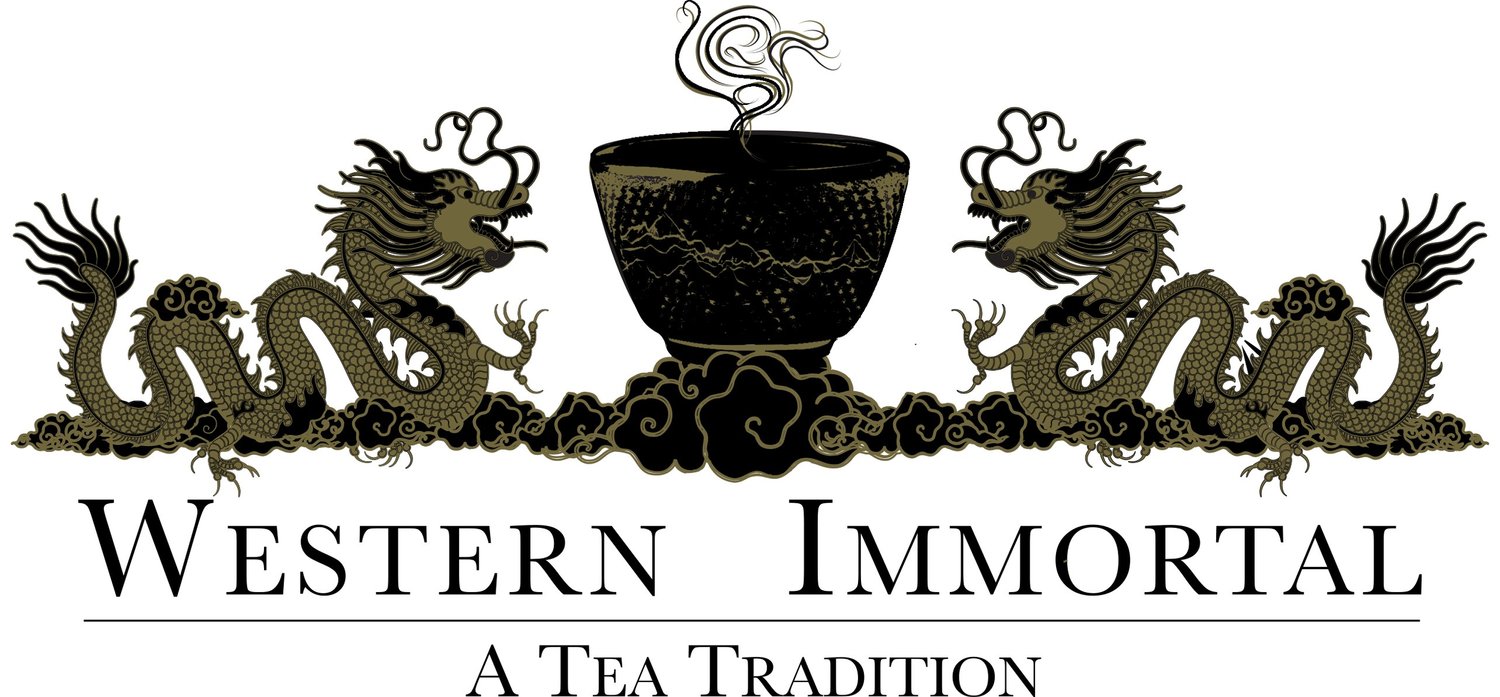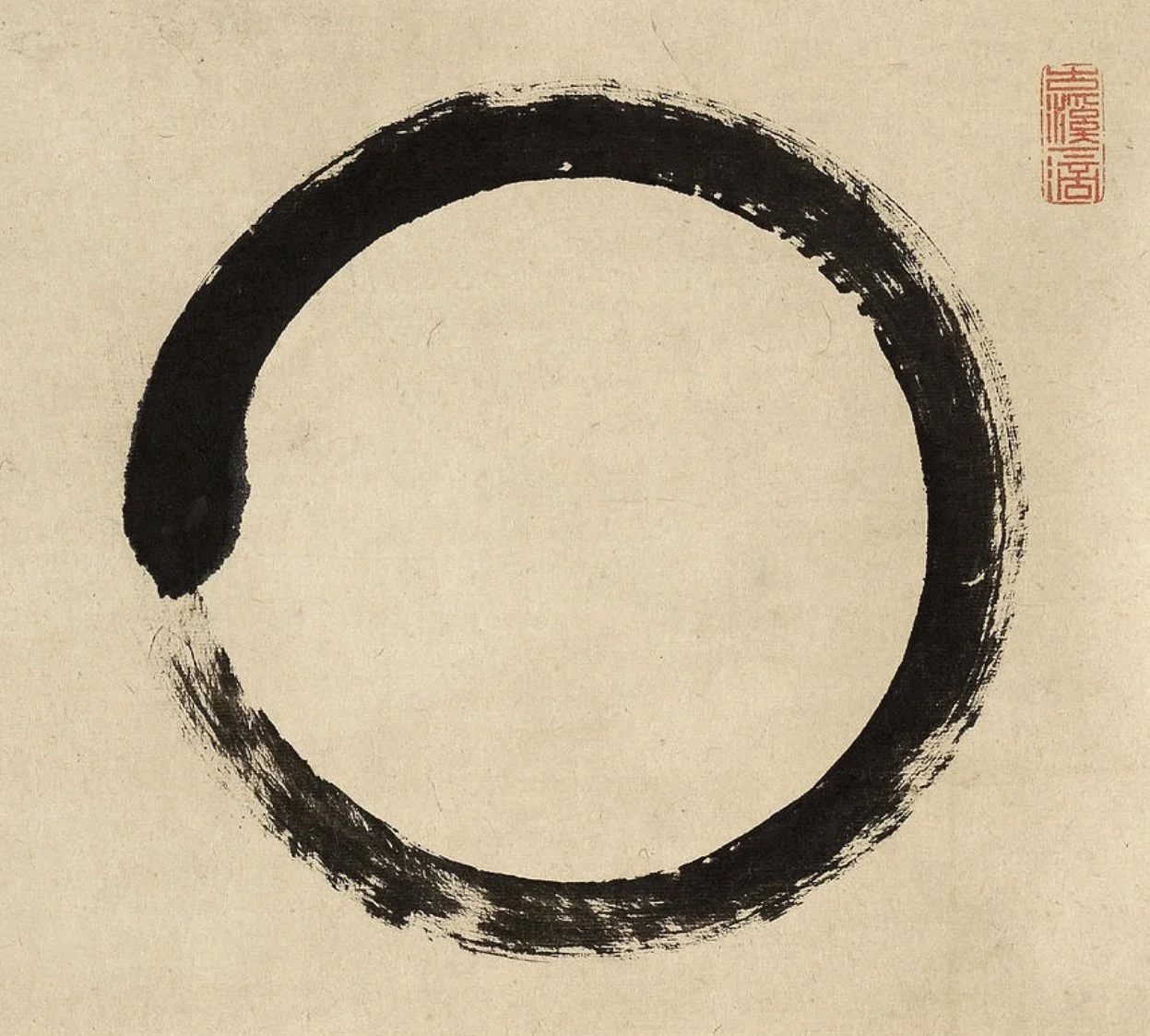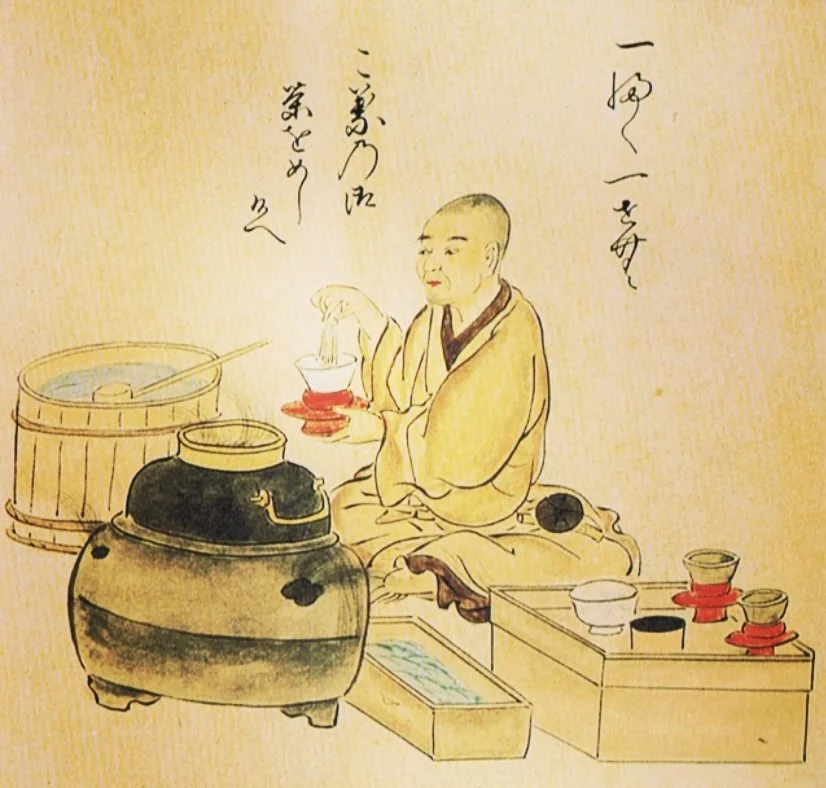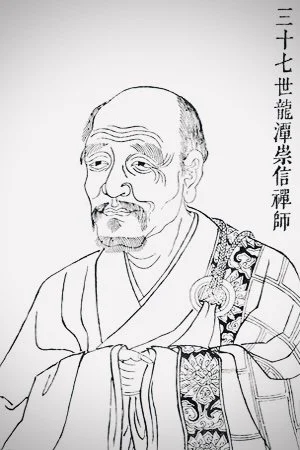A Tea Master’s Lesson
Enso or Zen Circle by Taido Shufu (1776 - 1836). “With a heart permeated with innocence the virtuous dragon walks alone.” Sen Rikyū (1522-91), Japan's most famous tea master, says this type of calligraphy is the most appropriate decoration for the tea ceremony.
“Empty your cup!”
Have you heard this famous phrase before, maybe in a kung fu movie or on TV? Believe it or not, the phrase is not a modern Hollywood invention.
An open tea house serving matcha. Copies of paintings from ‘Poetry Competition of Artisans’, vol. 2 from a set of three volumes. Copied by Kanō Osanobu and Kanō Masanobu in 1846. The original work, which was also copied, was made in 1632.
I first heard the “empty your cup” story in martial arts as a young teenager. It was said to be a very old saying meaning having one’s mind in an appropriate state to learn. When we have too many ideas, opinions, or even knowledge about something we are trying to learn, this can (seemingly paradoxically) impede our present learning. Our “cup” is too full of thoughts and opinions, so we can’t learn what is needed . We can’t taste the master’s tea. We must “empty our cup.” This could apply to anything in life, even drinking a cup of tea. There are different stages of mind described in Zen and Japanese martial arts, and sometimes this is associated with one of them.
I heard this story was from an old parable about tea and a master’s lesson. When I heard it, “empty your cup” had become a very popular piece of token wisdom, specifically in the American martial arts community I was exposed to at the time. The phrase had also spread to popular Western entertainment, although I wouldn’t hear it in that context until later. There are at least a couple of different accounts of who the tea master was and where the story came from.
This first account comes from a Japanese Zen master named Nan-in, who lived in Japan during the Meiji era (1868-1912 AD).
Nan-in received a university professor who came to inquire about Zen. Nan-in served tea. He poured his visitor's cup full, and then kept on pouring.The professor watched the overflow until he no longer could restrain himself. 'It is overfull. No more will go in!'‘Like this cup,' Nan-in said. ‘You are full of your own opinions and speculations. How can I show you Zen unless you first empty your cup?'
龍潭崇信 Longtan Chongzin (9th cent.)
Another version is said to be a conversation between a scholar, Tokusan, and the Zen master, Ryutan. These are derived from their original Chinese names of scholar Te-Shan Hsuan-chien and Zen (Chan) master Lung-t’an Ch’ung-hsin or Longtan Chongzin, who lived in China during the Tang dynasty (618-907 AD). The relationship between these two is already famously depicted in another story, Ryutan Blows out the Candle. The “empty your cup” story may have been part of their interaction during that larger story.
Scholar Tokusan - who was full of knowledge and opinions about the dharma - came to Ryutan and asked about Zen. At one point Ryutan re-filled his guest's teacup but did not stop pouring when the cup was full. Tea spilled out and ran over the table. "Stop! The cup is full!" said Tokusan."Exactly," said Master Ryutan. "You are like this cup; you are full of ideas. You come and ask for teaching, but your cup is full; I can't put anything in. Before I can teach you, you'll have to empty your cup."
Whoever the true master is in this story, it is quite probable they were also a tea master. It is said ancient tea masters served tea according to what a student or guest needed. Their demonstration of wisdom and skill was shown in the serving of the tea. The way the tea was served to the scholar in the story was specific to them. Though the “empty your cup” story may hold a valuable lesson for many of us, it is just one example of a specific tea master’s lesson. Perhaps it is a lesson for the beginning of our time with a tea master. What aspects of ourselves would we need to let go of or empty?
A cup of tea served by a tea master holds a lesson or medicine specifically for us at that exact time. This is the skill of a tea master and the way they impart their wisdom. Time with a tea master is a truly rare and very valuable gift, just as the scholar undoubtedly discovered!
Sources:
https://www.learnreligions.com/empty-your-cup-3976934
101 ZEN STORIES, transcribed by Nyogen Senzaki and Paul Reps
https://rethinkingreligion-book.info/ryutan-blows-out-the-candle/
https://terebess.hu/zen/longtan.html
https://www.asianstudies.org/publications/eaa/archives/what-is-teachable-about-japanese-tea-practice/
by Dr. Niko Olympiadis



